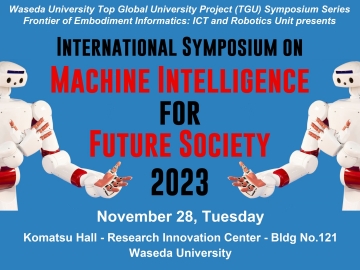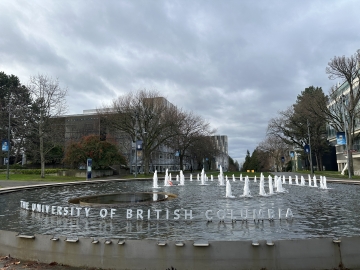Our Japanese that We Did Not Know: An American-Born Poet Discusses the Future of the Language of the Japanese Archipelago

The lecture event began with introductory comments by Professor Akio Kawajiri (Senior Dean, Faculty of Arts, Letters and Sciences).
Soon after arriving in Japan, Mr. Binard went through a phase during which he read many picture books while studying Japanese. The lecture began with an analysis of Hans Christian Andersen’s children’s tale, “The Emperor’s New Clothes” (translated into Japanese as Hadaka no Ōsama [The Naked King]), which was one of the picture books Mr. Binard found. The translation of the figure of the titular “emperor” differs depending on the country or region in which the work is published, sometimes being a word equivalent to “king” and sometimes being one equivalent to “emperor.” Precisely because the word chosen could easily become a political topic, publishers must choose their words carefully to keep their standing.
Mr. Binard noted how one’s own place within a language becomes apparent when one looks at the process of how a certain tale or word is told or said differently. Politics and literature—and society and literature—are connected. One might try to play it safe by trying to keep literature unrelated to politics or society, but the very act of doing so means one is already taking politics into consideration. Mr. Binard said that learning Japanese and coming to understand the world through the lens of the language was critical to his learning of where he stood. It is was, indeed, through the Japanese language that Mr. Binard came to better understand his own country’s constitution.

Mr. Binard also had a keen observation about the atomic bomb and Hiroshima: The term “Hiroshima,” when written in the Latin alphabet—that is, when used as a word in English—expresses the concept of the atomic bomb more so than it merely acts as a place name. In supplementary reading materials found in American schools, one can find the sentence “Why did Hiroshima happen?” Obviously, here “Hiroshima” is being used metonymically to refer to the atomic bomb. But that is not the only thing that is going on in that sentence: The way “Hiroshima” is referred to is disguised, intending to present what “happened” in Hiroshima not as a historical incident but, rather, as a natural phenomenon. This phrasing sugarcoats and avoids issues of responsibility and lays bare where the person who used these words—who phrased the sentence in that way—stands.
Similarly, when one listens to hibakusha—survivors of the atomic bombing—explain what they experienced in Hiroshima, they refer to the bomb using the Japanese word pika. Any speaker of Japanese would know that the word expresses something shining with light, but this is a peculiar use of the term, based on the special circumstances of the atomic bomb dropped on Hiroshima. This term pika, or pikadon (the “don” expressing the noise of the blast), is translated in Japanese-English dictionaries as “atomic bomb,” and an example sentence will be presented along the lines of Watashi no musume wa pikadon de yarareta, rendered as “My daughter was killed at Hiroshima (Nagasaki).” Mr. Binard noted that, thus, although these dictionaries describe how pika and pikadon refer to the atomic bomb, they fail to relate the sensory connotations. Pika and pikadon connote a “closeness” of being on the scene and thus include a standpoint. Indeed, pika is a word uttered (created) by those who were close to ground zero of the atomic blast, while pikadon is apparently a word used by those who were located somewhat farther away and who heard the shock wave. “Atomic bomb” is a word belonging to the side that dropped the bomb, and, naturally, the nuance is fundamentally different.
Throughout the event, Mr. Binard’s gentle but witty speaking style maintained a calm atmosphere within the venue; occasionally, comments and questions were posed to the audience, who then actively participated in the discourse. At the end, Professor Hidenori Jinno (Deputy Dean, Faculty of Letters, Arts and Sciences; Director, Research Institute for Letters, Arts and Sciences) gave some closing remarks, and the event concluded as a rousing success
Event Overview:
Date and time: October 12, 2018 (Fri.), 4:30 pm to 6:00 pm
Location: Okuma Small Auditorium, Waseda University
Speaker: Arthur Binard (Poet)
Opening remarks: Akio Kawajiri (Professor, Waseda University)
Closing remarks: Hidenori Jinno (Professor, Waseda University)
Organizer: Hirokazu Toeda (Professor, Waseda University)
Moderator: Hiroki Matsumoto (Guest Associate Professor, Waseda University Research Council)
Sponsored by: Waseda University Global Japanese Studies Model Unit, Top Global University Project
Co-sponsored by: Cultural Planning Section, Cultural Affairs Division, Waseda University
Waseda University Research Institute for Letters, Arts and Sciences
The Ryusaku Tsunoda Center of Japanese Culture








